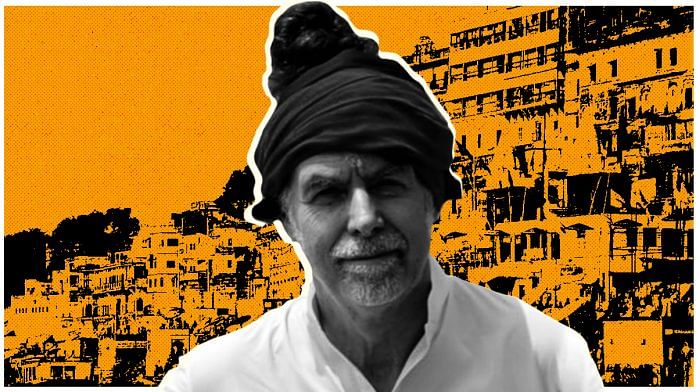New Delhi: German car makers seem to be facing the heat of the economic slowdown, with automobile giants such as Audi, Mercedes-Benz and BMW complaining of low sales figures in India, according to German ambassador to India Walter J. Lindner.
“Audi, Mercedes, BMW and all are a bit worried because of the lower sales number in India. The reasons here could be credits and demand-side problem,” Lindner told ThePrint in an interview.
Lindner, however, said German car manufacturers are facing major stumbling blocks globally also, in terms of stricter environmental standards and emission norms.
“I think now even the Indian government is coming out with a strategy and setting higher environmental standards for automobiles. We face this phenomenon all around the world,” Lindner said, adding these discussions will be part of the upcoming intergovernmental consultations between India and Germany.
Sales of automobiles in India fell for the 11th month straight in September this year — registering a downfall of 24 per cent, according to the industry body, Society of Indian Automobile Manufacturers (SIAM).
A total of 1,31,281 passenger cars were sold in the country last month, marking a fall of 33.40 per cent compared to the corresponding period a year ago, the SIAM data showed.
According to SIAM, the reasons for such a sharp fall were mainly a slowing economy, low consumer sentiment and increase in insurance cost, among others.
The Narendra Modi government is now planning to enforce the stringent Bharat Stage 6 (BS 6) fuel emission norms by 2020, in an effort to reduce air pollution. They are regarded as the most advanced emission standards for automobiles and are equivalent to Euro 6 norms currently in place across countries in the European Union.
Also read: RSS sees conspiracy behind controversy over Mohan Bhagwat meeting German ambassador
‘Fresh look’ at India-EU FTA
The German envoy also said the backbone of its economy is exports and, hence, in order to boost trade, Berlin will push both the European Union, of which it is a prominent member, and India to give a “fresh look” at the stalled negotiations for having an India-EU Free Trade Agreement (FTA) that has been stalled for over five years now.
The negotiations for the India-EU FTA, also known as the India-EU Broad Based Trade and Investment Agreement, began in 2007 and missed several deadlines for it to be concluded.
“We depend totally on trade. I know this has been put on ice for quite some years now. I think we should use new dynamics of new government here (in India) and a new Commission in the EU, which is headed by a German, to maybe put it at least again on the agenda and see where did we go wrong and what were the hindrances and give it a fresh look,” he added.
Lindner also said India and the EU should aim at creating a high-level economic dialogue on trade and investments.
Germany is India’s largest trading partner in the EU. The county is also one of the most powerful members of the EU and in a position to call shots on matters related to trade and business with the block.
‘Intergovernmental consultations have proven results’
The India-Germany inter-governmental consultations will take place between 31 October-2 November for which German Chancellor Angela Merkel will be visiting New Delhi.
According to Lindner, this biennial meeting between New Delhi and Berlin has “proved to be beneficial and stood the test of time”.
“This is one mechanism where both sides have a dense exchange, which is not always visible. We need India as partners, especially in a world where there are more and more authoritarianism and we need more democracies like India. We both are also multi-lateralists, and thus we need each other,” he added.
Merkel will be visiting India along with her Cabinet members as well as a high-powered business delegation for the intergovernmental consultations. The last such consultations was held in 2017 for which PM Modi had visited Berlin.
Also read: J&K is a bilateral issue, but has regional consequences: German Ambassador Walter Lindner




When these foreign car manufactures came to India with an understanding .that they have to
export a greater part of their production .Instead they seem to have been depending much on the local
market and govt, for their produce,
Indian market for these type of cars have perhaps reached a saturation point,also the road infrastructure
and parking facilities hamper their purchase,Uber might be doing its bit of its contribution for the decline in sales.
Since Germany is a key member in EU. FTA with EU can open up some market positives and this should be possibly be consulted during German Chancellors visit.
Regarding RCEP, though it holds a potential market, competitive advantages have to be explored
thru a viable means thru the Indian Government parleys,
After the Diesel Gate scandal the credibility of German Automobile companies has hit rock bottom. They have mostly pushed their diesel cars in India. FURther they have not adapted their marketing policies to India. Here they can learn from the Koreans who have excelled in selling here.
The rich are hurting as much as the poor and the middle class, it is just that the nature of the pain and deprivation is different. 2. RCEP and the FTA with the EU are both important. Foreign policy does not begin and end with cross border terrorism.